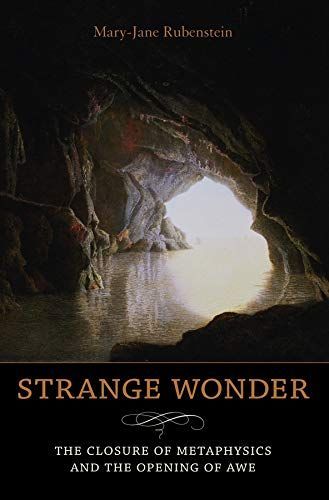
Strange Wonder The Closure of Metaphysics and the Opening of Awe
Western philosophy's relationship to "wonder" is deeply ambivalent. On the one hand, wonder is said to be the origin of all philosophy. On the other hand, it is associated with a kind of ignorance that ought to be extinguished. This study argues that by endeavoring to resolve wonder's indeterminacy, philosophy has secured itself at the expense of its own condition of possibility. Strange Wonder locates a reopening of this primordial uncertainty in the work of Martin Heidegger, whose "wonder" oscillates between a shock at the groundlessness of things and an astonishment that things nevertheless are. Mary-Jane Rubenstein traces this double movement through the thought of Emmanuel Levinas, Jean-Luc Nancy, and Jacques Derrida, tracing wonder as an awesome, awful opening that exposes thought to devastation as well as transformation. Insofar as wonder reveals the extraordinary through the ordinary, Rubenstein argues it is crucial to the task of reimagining political, religious, and ethical possibilities.